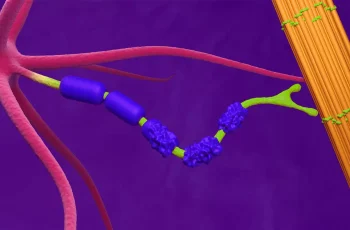Metastatic pancreatic cancer poses significant challenges, particularly for older patients who often have additional vulnerabilities complicating treatment decisions. Research presented by Dr. Efrat Dotan at the ASCO Gastrointestinal Cancers Symposium highlights the importance of assessing geriatric vulnerabilities, nutritional status, and quality-of-life (QoL) factors in this demographic. The findings from a recent randomized study emphasize the need for comprehensive geriatric assessments beyond traditional performance evaluations.

Dr. Dotan’s study reveals that baseline vulnerabilities, especially nutritional status, significantly impact overall survival (OS). A notable 17% reduction in the survival hazard was observed for each unit improvement in nutritional status, underscoring the necessity for healthcare teams to implement nutritional interventions before chemotherapy to improve outcomes.
Additionally, factors such as physical functioning and mental health, particularly depression levels measured by the Geriatric Depression Scale (GDS), were found to correlate with survival rates. An integrative approach that addresses both mental and physical health can enhance patient experiences and longevity.
The study raises questions about integrating geriatric assessments into treatment planning for older patients with comorbidities. These assessments could help clinicians identify patients who would benefit most from chemotherapy, allowing for personalized care strategies. Dr. Dotan emphasizes that managing geriatric vulnerabilities alongside supportive care may improve outcomes and identify candidates for aggressive treatment protocols.
Session moderator Dr. Flavio Rocha highlighted challenges in applying these findings to broader patient populations, particularly those with earlier-stage diseases. Distinguishing between age-related and disease-related vulnerabilities requires further exploration.
Despite promising results, the study acknowledges gaps, particularly regarding patients who opted out of treatment. Understanding this group is crucial for effective palliative care strategies. Future research must include these patients and evaluate the geriatric assessment tool’s effectiveness, as Dr. Dotan questions whether the included clinical factors adequately represent vulnerability.
Overall, Dr. Dotan’s findings signal a shift in treating elderly patients with metastatic pancreatic cancer. Emphasizing the interplay between vulnerabilities, QoL factors, and survival rates highlights the need for a holistic treatment approach. Ongoing research into geriatric assessment tools and broader patient care factors will be vital in optimizing outcomes for this vulnerable population. Integrating these elements into clinical practice has the potential to significantly enhance survival and quality of life for elderly patients facing this challenging diagnosis.




